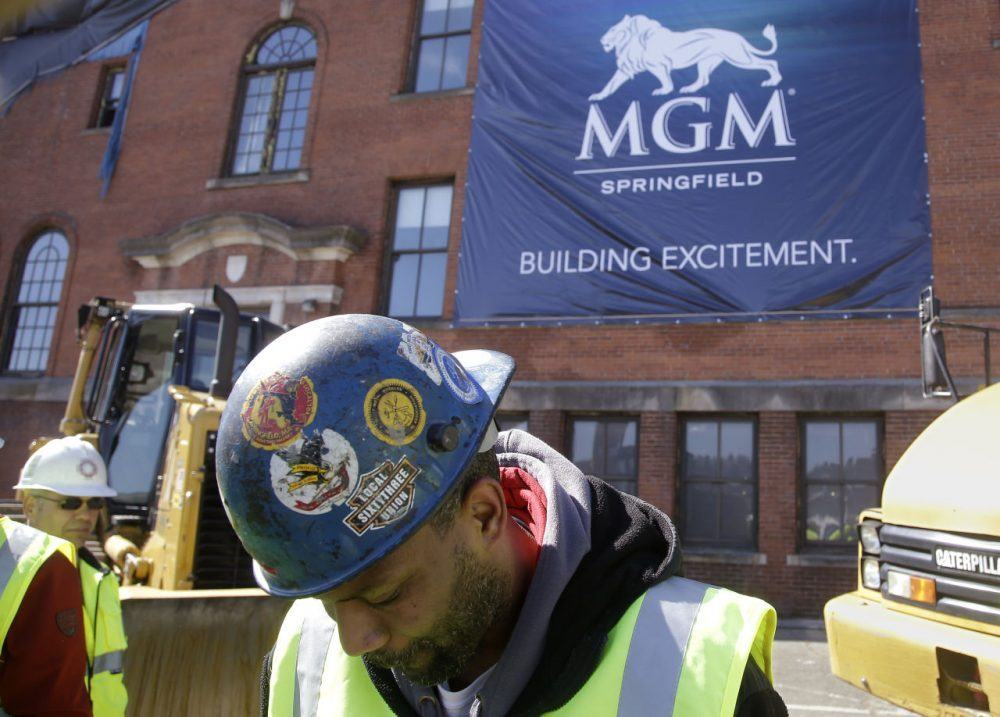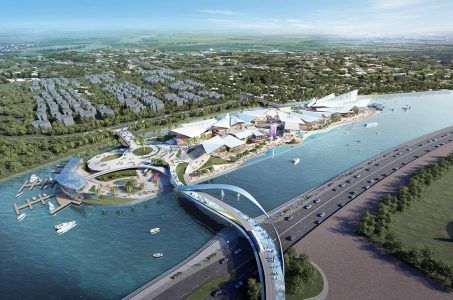MGM Lawsuit to Block Connecticut Satellite Casino Is Dismissed by Federal Appeals Court
Posted on: September 12, 2017, 09:30h.
Last updated on: September 12, 2017, 09:39h.
Legal efforts by MGM Resorts to block construction of a third casino in Connecticut have suffered a defeat, after the 2nd US Circuit Court of Appeals in Manhattan rejected the gaming operator’s rehearing request.

MGM argues that Connecticut violated its own state constitution when it signed off on plans in late June to authorize a satellite casino on non-tribal land in East Windsor. Lower courts have sided with the state, forcing MGM to seek review from the federal appeals court. The 2nd US Circuit denied the petition late last week.
MGM’s motives are clear: they want to protect their $950 million casino resort complex in Springfield, which is just 13 miles north across the Connecticut/Massachusetts border from East Windsor. The project is on track for completion in September of 2018.
“As we have been saying all along, we believe this new law violates both the state and United States constitutions, and we will continue to argue our case vigorously,” MGM Senior VP Uri Clinton said last month. With the appeals process over, Clinton and MGM would need to bring a new legal challenge to continue trying to stall the project.
Case Dismissed
Connecticut’s satellite casino bill earmarked the gambling facility for the state’s two Native American groups, the Mohegan and Mashantucket Pequot tribes, which will jointly build and operate the new project.
Officials with MGM maintain that Connecticut failed to engage in a competitive bidding process, and is effectively expanding gambling without the consent of voters. Politicians, including Governor Dannel Malloy (D), say that’s not true, and that the satellite is simply to protect jobs and keep gaming dollars in the state.
The tribes will pay the Connecticut $1 million up front for the 200,000-square-foot satellite casino, and plan to jointly invest $300 million on its construction. The Class III property will share 25 percent of its gross revenues with the state, which is a similar agreement to ones with Foxwoods and Mohegan Sun.
The casino will house 2,000 slot machines and up to 150 tables.
One Final Hurdle
With MGM’s case tossed out, the only obstacle remaining is gaining the approval of the US Bureau of Indian Affairs (BIA). The federal agency had opined last summer that it saw no reason the East Windsor site shouldn’t be approved for a tribal casino.
The federal Indian Gaming Regulatory Act (IGRA) allows tribes to request that the US Department of the Interior (DOI) take recently acquired lands into trust. But in order to achieve such a classification, tribes must demonstrate that the property “consolidates or enhances tribal lands,” and must prove they have an historical link to the region.
Both Native American groups have long ties to various parts of New England, and that extends across to Connecticut as well. With the historical component seemingly solved, the tribes will simply have to make their case that an East Windsor casino will enhance the tribes’ prosperity.
Once the BIA issues approval, as it’s expected to do, construction will begin shortly thereafter on the casino. Both MGM and the tribes are racing to open their doors, hoping to establish customer loyalty first.
Related News Articles
New York Slots Player Wins $43 Million Steak Dinner
US Sanctions Kings Roman Casino in Laos For Operating Global Crime Network
Steve Wynn Cannot Sell Shares in Wynn Resorts, Says Nevada Judge
Most Popular
Mirage Las Vegas Demolition to Start Next Week, Atrium a Goner
Where All the Mirage Relics Will Go
Most Commented
-
Bally’s Facing Five Months of Daily Demolition for Chicago Casino
— June 18, 2024 — 12 Comments -
Chicago Pension Mess Highlights Need for Bally’s Casino
— July 2, 2024 — 5 Comments
















No comments yet